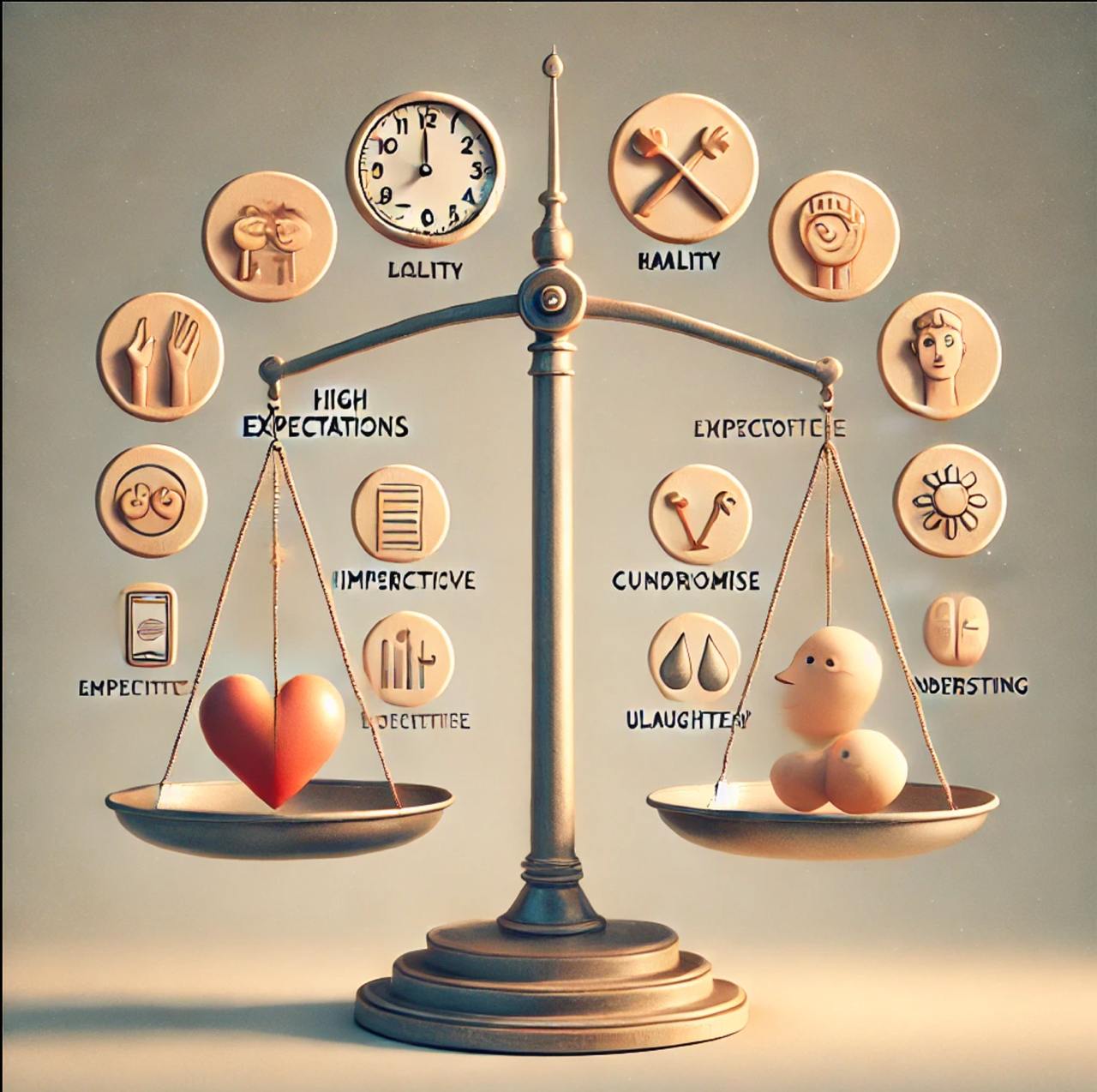
In today’s fast-paced world, modern relationships—whether friendships, marriages, or professional connections—are facing new challenges. Unlike past generations, where relationships were built to endure over time, today’s connections often struggle under the weight of high expectations, quick judgments, and instant communication. So, how do we maintain relationships in an era of constant change and relationship challenges? Let’s explore the evolving dynamics of relationships and how to navigate this tricky terrain while keeping it real.
1. The “Expectation Overload” in Modern Relationships
In the digital age, we’re living with an expectation overload in relationships. Instant messaging means we expect replies right away. Social media portrays ideal relationships that set unrealistic standards. Whether it’s expecting your partner to meet all your needs or a friend to always be available, relationship expectations are higher than ever. And when someone doesn’t deliver, the fallout is swift. Instead of holding onto healthy relationships, we often fall into a cycle of frustration. But here’s the secret: managing expectations and focusing on mutual respect can help you keep things balanced, without the constant pressure of perfection.
2. The Short Memory Syndrome: Why We Forget the Good
Here’s a frustrating truth: we tend to have short memory syndrome in modern relationships. The countless good moments—a supportive friend, a loving partner—can be wiped out by one small slip-up. One missed text, one argument, and suddenly, the person who has been there for years is under a cloud of doubt. This “transactional mindset” means we judge people based on recent actions rather than the history of the relationship. To build lasting connections, try focusing on the broader picture, not just the latest bump in the road.
3. The Individualism Trap: Me, Myself, and My Expectations
In a world that celebrates individualism and personal growth, relationships can often take a back seat. We focus on our own goals, desires, and self-improvement. But when we start seeing relationships as mere extensions of ourselves, we risk pushing others away if they don’t meet our standards. A relationship built on mutual respect thrives when both people can compromise and accept each other’s differences. Embrace your individuality, but remember that shared values and communication are the true foundations of healthy relationships.
4. Social Media: The Unrealistic Relationship Standards
Social media can be a double-edged sword when it comes to relationships. On the one hand, it allows us to stay connected, but on the other hand, it sets up unrealistic relationship standards. Seeing other couples post perfect pictures or friendships that seem flawless can make you doubt your own connections. In reality, relationships are about real-time interactions, not Instagram highlights. To keep your relationship strong, stop comparing and focus on what works for you. Real connections are messy, and that’s okay.
5. How to Manage Expectations and Build Lasting Relationships
Want to maintain healthy relationships in today’s world? Here are some pro tips for managing expectations and staying grounded:
- Focus on the Big Picture: When you feel let down, take a moment to reflect on the full history of the relationship. Do the positives outweigh the occasional letdowns?
- Embrace Imperfection: No one is perfect, and no relationship is flawless. Accepting this can help you let go of unrealistic expectations.
- Open Communication is Key: Avoid the “mind reader” game. Be open and honest about your feelings and expectations.
- Stop the Comparison Game: Comparing your relationship to others (especially on social media) is a recipe for disappointment. Your connection is unique, and that’s what matters.
- Flexibility is Crucial: People and relationships change over time. Embrace this natural evolution and adapt together.
Conclusion: Navigating Relationships in a Fast-Changing World
Modern relationships come with their own set of challenges, especially with high expectations and the pressure to be perfect. But if you can focus on clear communication, mutual respect, and compromise, you’ll create a connection that can stand the test of time. Remember, relationships aren’t about meeting someone’s ideal—they’re about growing together, navigating the ups and downs, and appreciating each other’s imperfections. So let go of those unrealistic standards, and build a relationship that’s truly meaningful.





ReplyDeleteSunday morning, my friends and I visited a cafe for breakfast... I spotted an elderly couple, likely in their 70s or 80s, I think... They entered the cafe, clasping hands and assisting each other as they sat down on the chair... I was incredibly moved by witnessing that couple... the genuine bond is defined by the support, the care, the love I observed that day... I too desire a relationship where we age together, sharing experiences, life, and everything... like wandering in a coffee shop or discovering the world side by side... so deeply cherished 😍
That is very precious to watch in recent times where all I see cases of Divorce/Separation. I mean we have given up our ability to see something through. We are just slowly looking everything as per our convenience and reluctant to adjust or entertain even slightly different behaviour or thought which pushes us out of our comfortable zone.
ReplyDelete